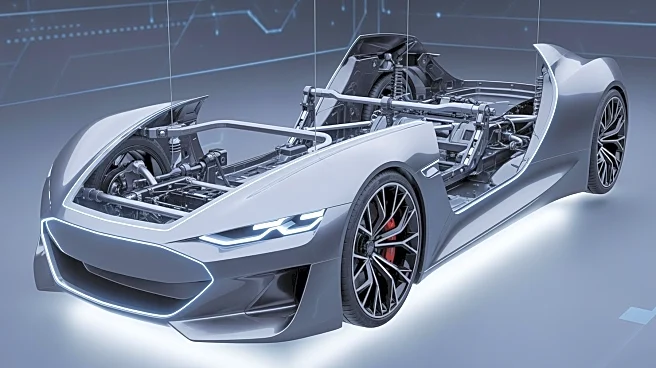What's Happening?
Honda has unveiled a groundbreaking vehicle platform that challenges traditional car design principles by incorporating a 'bending' front-end structure. This innovative design aims to improve vehicle dynamics
by allowing the structure to deform during cornering, thereby enhancing steering and cornering capabilities. The new platform, which will be used in models such as the Honda Pilot and Civic, is designed to lower weight and cost while improving handling. The modular structure is expected to reduce vehicle weight by 198 pounds and cut costs by 10% compared to current models. This platform is set to enter production in 2027.
Why It's Important?
This development marks a significant shift in automotive engineering, as it moves away from the long-standing focus on increasing rigidity. By optimizing body rigidity and allowing for controlled deformation, Honda aims to provide a better driving experience with improved handling and comfort. This could set a new standard in the automotive industry, influencing how other manufacturers approach vehicle design. The reduction in weight and cost also suggests potential economic benefits for both the company and consumers, as it may lead to more affordable and efficient vehicles.
What's Next?
As Honda prepares to implement this new platform in its future models, the automotive industry will likely monitor its performance closely. If successful, this approach could inspire other manufacturers to adopt similar strategies, potentially leading to a broader industry shift towards more dynamic and adaptable vehicle designs. Additionally, consumer response to these changes will be crucial in determining the platform's success and its impact on future vehicle development.












